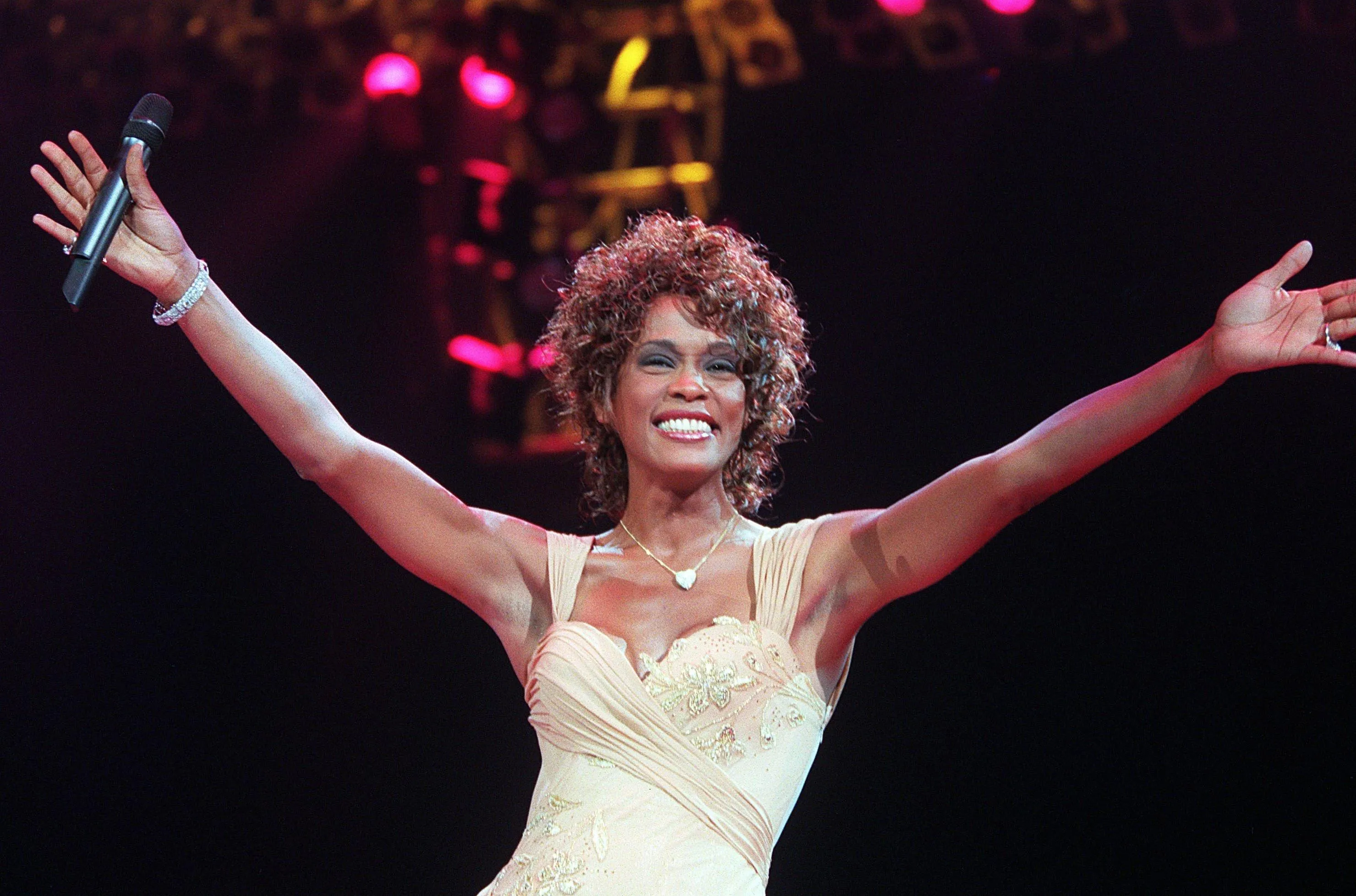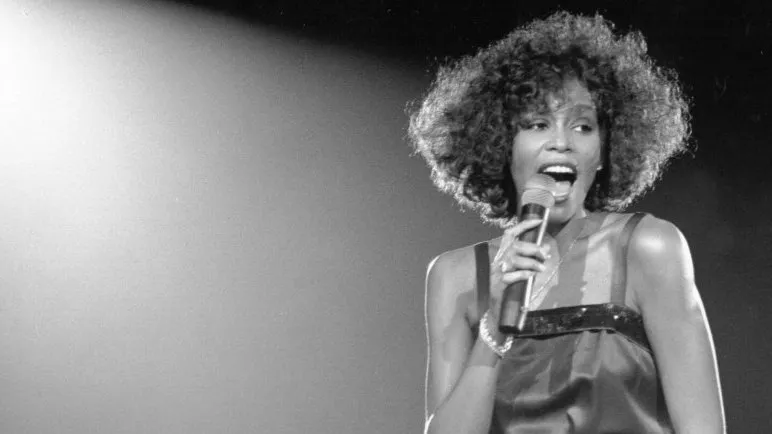Whitney Houston’s legacy as one of the greatest voices of all time is not just about her remarkable vocal range, technical skill, or her record-breaking hits. Her impact runs much deeper, intertwined with the cultural, social, and racial landscape of her time. As a Black woman in a predominantly white pop music industry, Whitney Houston not only shattered barriers but also redefined what it meant to be a global superstar. Her legacy is one of groundbreaking success, resilience, and a celebration of Black beauty and talent. This enduring legacy continues to influence artists, shape cultural narratives, and inspire generations long after her untimely passing.

Breaking Barriers in a White-Dominated Industry
When Whitney Houston burst onto the scene in the mid-1980s, the pop music landscape was largely dominated by white artists. While Black artists were successful in genres like R&B, soul, and jazz, mainstream pop music often marginalized them. Whitney, with her undeniable talent and cross-genre appeal, broke through these barriers with her debut album, *Whitney Houston* (1985), which produced several chart-topping singles and established her as a pop icon.
What made Whitney’s success particularly groundbreaking was how she navigated the racial dynamics of the industry. Her music was polished and pop-oriented, which led some critics to accuse her of "selling out" or being "too white." However, this critique missed the broader context: Whitney was not abandoning her Blackness; she was redefining it in a way that could resonate across racial boundaries. Her success opened doors for other Black artists to enter the pop mainstream without compromising their identity or artistry.
A Voice That Transcended Race
Whitney Houston’s voice was often described as "The Voice," a term that reflected not only her vocal prowess but also her ability to connect with people from all walks of life. Her vocal technique was rooted in the Black gospel tradition, characterized by its emotional intensity, improvisational freedom, and deep spiritual resonance. This foundation gave her voice a unique quality that transcended racial and cultural boundaries.
Her rendition of songs like "I Will Always Love You" and "The Greatest Love of All" are prime examples of how her voice could turn a song into an emotional experience. Whitney’s ability to convey universal themes of love, loss, and hope through her music resonated with listeners regardless of their background. In this way, her voice became a symbol of unity and shared human experience, bridging gaps between different communities.

Redefining Beauty Standards
Whitney Houston’s success also had a profound impact on how Black women were perceived in mainstream media. At a time when Eurocentric beauty standards dominated the entertainment industry, Whitney's image challenged and expanded the definition of beauty. With her radiant smile, elegant style, and commanding presence, she represented a new kind of Black beauty that was sophisticated, glamorous, and accessible.
Her success helped pave the way for future generations of Black female artists who could now aspire to the same level of visibility and recognition. Artists like Beyoncé, Rihanna, and Jennifer Hudson have all cited Whitney as a major influence, not just for her music but for her role in breaking down barriers for Black women in the industry. Whitney’s legacy in this regard is one of empowerment, as she showed the world that Black is indeed beautiful and worthy of celebration on the world stage.
Cultural Impact and Representation
Whitney Houston’s cultural impact extended beyond her music and into her representation of Black excellence in popular culture. She was one of the first Black women to achieve global superstardom in a way that transcended racial boundaries, becoming a role model for millions of young Black girls around the world. Her success was a powerful statement in a society that often devalues and marginalizes Black voices.
One of the most iconic moments of Whitney’s career was her performance of "The Star-Spangled Banner" at the 1991 Super Bowl. At a time when the United States was embroiled in the Gulf War, Whitney’s rendition of the national anthem was not just a display of vocal talent; it was a moment of profound cultural significance. Dressed in a white tracksuit and headband, Whitney delivered a rendition that was both patriotic and soulful, infusing the anthem with the spirit of Black gospel. This performance was a powerful reminder of the contributions of Black Americans to the fabric of the nation and remains one of the most memorable Super Bowl performances in history.

Resilience in the Face of Adversity
Whitney Houston’s life was not without its challenges, and her struggles with substance abuse and personal issues were well-documented by the media. However, even in the face of adversity, Whitney’s resilience and strength were evident. She continued to produce music, perform, and connect with her audience, even during the most difficult times of her life.
Her 2009 album, *I Look to You*, was a testament to her enduring spirit. The album, which was seen as her comeback, featured songs that reflected her personal struggles and her journey toward healing and redemption. The title track, "I Look to You," is a powerful ballad that speaks to the theme of finding strength in faith and love. The album resonated with many of her fans, who had followed her career through its highs and lows, and it served as a reminder of Whitney’s ability to rise above challenges.
Influence on Future Generations
Whitney Houston’s influence on future generations of artists cannot be overstated. Her vocal style, which combined technical precision with emotional depth, set a standard that many singers continue to aspire to. Her ability to cross over into different musical genres, from pop to R&B to gospel, paved the way for artists like Mariah Carey, Beyoncé, and Ariana Grande, who have all cited Whitney as a major influence on their careers.
Beyond her vocal influence, Whitney’s legacy also includes her impact on the music industry’s approach to artist development and image management. Her success demonstrated the importance of cultivating a strong, authentic connection with an audience, and her career has become a blueprint for how to navigate the complexities of fame while staying true to one’s artistic vision.

The Enduring Legacy of Whitney Houston
More than a decade after her passing, Whitney Houston’s legacy continues to resonate. Her music remains a staple on radio stations and streaming platforms, and her influence can be seen in the work of countless contemporary artists. The posthumous release of the documentary "Whitney" and the biopic "I Wanna Dance with Somebody" have further solidified her place in music history, reminding the world of her extraordinary talent and the cultural significance of her life and career.
Whitney Houston’s legacy is one of groundbreaking achievements, resilience, and the celebration of Black excellence. She broke down barriers in an industry that was not always welcoming to Black artists, redefined beauty standards, and used her voice to connect with people across the globe. Her impact is felt not only in the music world but also in the broader cultural landscape, where she remains a symbol of the power and beauty of Black sounds. Whitney Houston’s groundbreaking legacy is a testament to the enduring truth that Black sounds, and Black voices, are beautiful—and they deserve to be celebrated, honored, and remembered for generations to come.

-1724053214-q80.webp)

